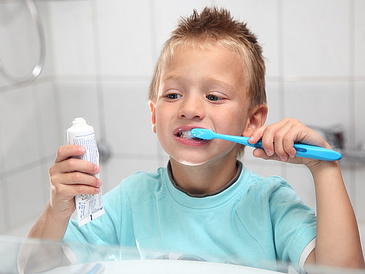According to a European study with tumor patients, poor oral health and irregular dental checks are strongly related to mouth and throat cancers. The research also suggests that excessive use of mouthwash may also cause this particular form of cancer. These are the results of a new study led by Prof. Wolfgang Ahrens of the Leibniz Institute for Prevention Research and Epidemiology – BIPS in Bremen, Germany. The study was coordinated by the International Agency for Research on Cancer of the World Health Organization (WHO).
The researchers involved identified new risk factors for upper aerodigestive tract cancer (cancer of the mouth, larynx, pharynx and esophagus). The study of 1,962 patients with mouth and throat cancers, with a further 1,993 people used as comparison control subjects, was conducted in 13 centers across nine countries and supported by EU funding.
Smoking and alcohol are not the only reasons for cancer
It has been established for some time that smoking and heavy alcohol consumption, particularly in combination, are strongly related to mouth and throat cancers. Low socio-economic status is also recognized as a contributory factor. Prof. Wolfgang Ahrens, Deputy Director of the BIPS and professor of epidemiological research methods at the University of Bremen said: “These results are really important. Up until now, it was not really known if these dental risk factors were independent of the well known risks for mouth and throat cancers – smoking, alcohol and low socioeconomic status.”
The researchers were able to strip out the causation factors of smoking, alcohol and socio-economic factors, and still found there was a connection between poor oral health and increased risk of mouth and throat cancers. The findings are highly “nuanced” and there is an interconnectedness of many of the risk factors, he stressed, but there was no evidence that poor oral health and poor dental care were also part of the picture. The definition of poor oral health included people who had complete or part dentures, people with persistently bleeding gums.
“Persons wearing dentures should have regular dental checks”
“People should not assume that if they wear dentures and have none of their own teeth left, they have no need to see a dentist,” said Dr. David Conway, Clinical Senior Lecturer at the University of Glasgow Dental School and one of the senior authors of the study. “On the contrary, even if you have got dentures, you should make sure you go for regular check-ups,” he said. The frequency of dental visits should be determined by a dentist’s risk assessment. Low risk patients should visit their doctor once a year, for patients with a higher risk visits could be six-monthly.
Excessive use of mouthwash increase risk of cancer
“The possible role of mouthwash as a causative factor would require further research,” said Professor Ahrens. Nevertheless, the researchers found that “frequent use of mouthwashes (3-plus times per day) was associated with an elevated risk of developing mouth and throat cancer”, although they were unable to analyze the types of mouthwash used many years ago by participants in the study. Dr. Conway advises not to use mouthwash every day. The most important things are good regular brushing and flossing combined with regular check-ups by a dentist.
Results are published, research continues
The international research group, which includes collaborators from Germany, UK, Estonia, Switzerland, Greece, the Czech Republic, Italy, Norway, Spain, USA, Croatia, Ireland and France, has recently received a new tranche of funding from the EU and WHO’s International Agency for Research of Cancer, which will be used to research prognostic factors as well as risk factors.
A scientific article was recently published in Jounal Oral Oncology: Oral health, dental care and mouthwash associated with upper aerodigestive tract cancer risk in Europe: the ARCAGE (Alcohol-Related Cancers and Genetic-susceptibility in Europe) study.
www.onraloncology.com/article/PIIS1368837514000657/abstract
Oral Oncol. 2014 Mar 26. pii: S1368-8375(14)00065-7. doi: 10.1016/j.oraloncology.2014.03.001. [Epub ahead of print]
Further information:
University of Bremen
Faculty of Mathematics and Computer Science
Leibniz Institute for Prevention Research and Epidemiology (BIPS)
Prof.Dr. Wolfgang Ahrens
Mobile: +49 172-408-8706
Phone: +49 421 218-56822
E-Mail: ahrensprotect me ?!bips.uni-bremenprotect me ?!.de

